Navigating the logistics of importing goods from China to South Korea can be a complex process, particularly when it comes to selecting the right shipping company. With a variety of shipping options available—each with its own advantages and disadvantages—understanding these choices is crucial for optimizing costs and delivery times. This ultimate guide delves into the key factors influencing shipping costs, provides insights into effective research methods for selecting a shipping provider, and offers practical tips for reducing expenses. By arming yourself with this knowledge, you can make informed decisions that enhance your business’s supply chain efficiency.
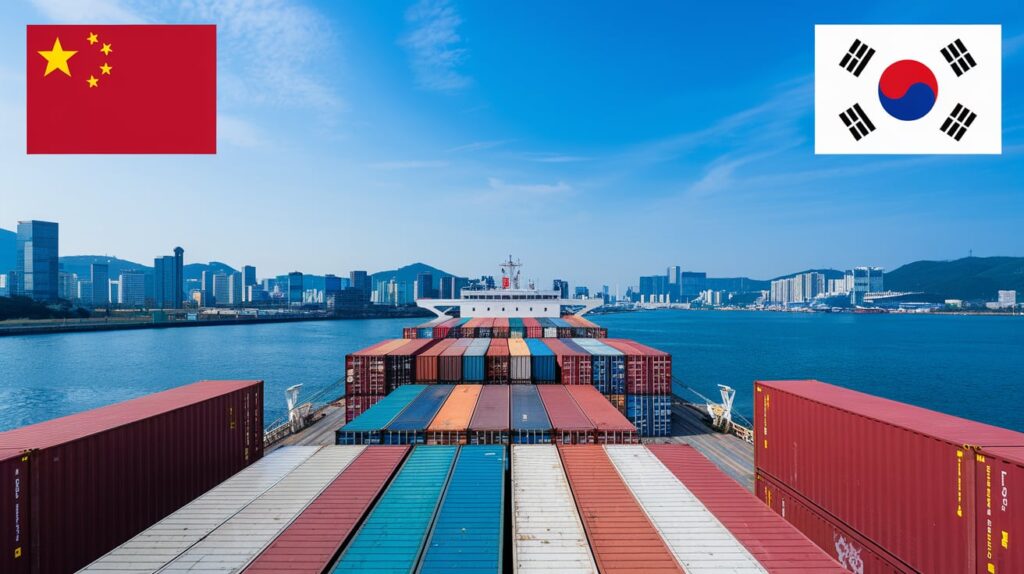
Understanding Shipping Options from China to South Korea
When it comes to importing goods from China to South Korea, understanding the available shipping options is crucial for making informed decisions. The choice of shipping method can significantly affect the overall cost, delivery speed, and efficiency of your logistics process.
Overview of Shipping Methods Available
Importers typically have access to several shipping methods when transporting goods from China to South Korea. The primary options include:
-
Air Freight: This is the fastest method of shipping goods, ideal for urgent or high-value items. Although it has a higher cost, it offers quicker delivery times and is suitable for smaller shipments.
-
Sea Freight: A more economical choice for larger shipments, sea freight involves transporting goods via container vessels. While it is slower than air freight, it is often the preferred option for bulk goods due to its cost-effectiveness.
- Door-to-Door Shipping: Services that include collection from your supplier in China and delivery to your specified location in South Korea. This option can simplify logistics and minimize handling.
Understanding these methods will help you determine the most suitable shipping solution based on your specific needs, such as budget, urgency, and the nature of the goods being transported.
Comparison of Air Freight and Sea Freight
| Feature | Air Freight | Sea Freight |
|---|---|---|
| Speed | Very fast (1-3 days) | Slower (7-30 days) |
| Cost | Higher per kg | Lower per kg |
| Cargo Size | Limited (typically less than 150 kg) | Large volumes possible |
| Environmental Impact | Higher carbon footprint | More environmentally-friendly per kg |
| Tracking | Real-time tracking available | Tracking available, but may be less precise |
| Best For | Urgent, high-value items | Bulk goods and non-urgent shipments |
Both methods have their own advantages and disadvantages. Choosing between air freight and sea freight will depend on your specific circumstances, including shipment size, budget, and urgency.
Key Factors Influencing Shipping Costs
When calculating shipping costs from China to South Korea, various factors come into play. Understanding these can help you better estimate your logistics expenses and make informed decisions.
Weight and Dimensions of Your Shipment
Shipping costs are heavily influenced by the weight and dimensions of your shipment. Most freight forwarders calculate freight charges based on the greater of the actual weight or the volumetric weight (dimensional weight). The following factors should be considered:
-
Actual Weight: This is the standard weight of your shipment measured in kilograms.
-
Volumetric Weight: Calculated using the formula: Length (cm) x Width (cm) x Height (cm) ÷ 5000 (for air freight) or ÷ 1000 (for sea freight). This calculation is used to determine how much space your shipment occupies in transport.
It’s essential to measure your shipment accurately to prevent unexpected costs.
Distance and Delivery Time Considerations
The distance between the point of origin in China and the destination in South Korea directly affects shipping costs. Generally, longer distances incur higher charges. Additionally, delivery time is a critical factor. Here are some considerations:
-
Urgency of Shipment: If you need your goods delivered quickly, air freight may be your only option, albeit at a premium price.
-
Frequency of Sailings or Flights: Regular shipping schedules can reduce costs, as you can plan your shipments around available services.
-
Port or Airport Accessibility: The distance from the nearest port or airport can also impact costs and logistics planning.
Customs Duties and Taxes in South Korea
Importing goods into South Korea involves customs duties and taxes that can significantly impact your overall shipping costs. Here’s what you need to know:
-
Customs Duties: These are calculated based on the customs value of the goods, which includes the cost of the goods, insurance, and freight. The duty rates can vary widely depending on the product category.
-
Value Added Tax (VAT): South Korea imposes a VAT on imported goods, typically around 10%. It is applied after customs duties.
-
Documentation: Accurate paperwork is essential to facilitate clearance and avoid delays. This includes commercial invoices, packing lists, and certificates of origin.
To navigate these complexities, it is advisable to engage a professional freight forwarder like Dantful International Logistics. They provide a comprehensive customs clearance service, ensuring that your shipments comply with local regulations and minimize the risk of unexpected costs.
In summary, understanding the various shipping options and the factors influencing shipping costs is critical for efficient logistics management when importing goods from China to South Korea. By leveraging the expertise of professionals like Dantful, you can optimize your supply chain and focus on growing your business.
You may be interested in the following related articles:
- Shipping From China To Vietnam
- Shipping From China To Thailand
- Shipping From China To Philipines
- Shipping From China To Pakistan
- Shipping From China To Japan
- Shipping From China To Indonesia
- Shipping From China To Singapore
- Shipping From China To Malaysia
How to Research Shipping Companies Effectively
When selecting a shipping provider for your logistics needs, conducting thorough research is vital. The right shipping company can significantly impact the efficiency and cost-effectiveness of your operations. Here are effective methods for researching shipping companies.
Utilizing Online Freight Marketplaces
Online freight marketplaces have emerged as valuable resources for importers looking to identify suitable shipping companies. These platforms connect shippers with multiple freight forwarders, allowing for easy comparison of services and prices. Key features of these marketplaces include:
-
Quotation Requests: Users can submit their shipment details and receive quotes from various providers, facilitating side-by-side cost comparisons.
-
Service Listings: Detailed descriptions of services offered, including air freight, ocean freight, and specialized services like DDP shipping services or customs clearance, help shippers make informed decisions.
-
Real-Time Tracking: Many platforms provide integrated tracking solutions, allowing customers to monitor their shipments throughout the logistics process.
Examples of popular online freight marketplaces include Freightos, ShipBob, and Flexport. Utilizing these platforms can streamline the research process, enabling you to find competitive rates and compare services without direct outreach to multiple companies.
Reading Customer Reviews and Testimonials
Customer feedback is an invaluable aspect of your research. Reviews and testimonials provide insights into the performance and reliability of shipping companies. Here’s how to effectively leverage this information:
-
Review Aggregators: Websites such as Trustpilot, Google Reviews, and Yelp aggregate user reviews, providing a broader perspective on customer experiences with different shipping companies.
-
Social Media and Forums: Platforms like LinkedIn and specialized logistics forums allow users to share their experiences and ask for recommendations. Engaging with these communities can further enhance your understanding of a company’s reputation.
-
Case Studies and Success Stories: Many companies publish case studies or testimonials from satisfied customers on their websites. These can offer insight into how they handle specific scenarios, including complex shipments or customs issues.
Evaluating reviews and testimonials across multiple sources helps build a comprehensive picture of a shipping company’s performance and customer satisfaction.
Comparing Shipping Companies
Once you have gathered information about potential shipping providers, it is essential to compare them effectively. A structured comparison will empower you to make the best choice for your shipping needs.
Criteria for Comparison
When comparing shipping companies, consider the following critical criteria:
| Criterion | Description |
|---|---|
| Cost | Evaluate pricing structures, including any hidden fees, discounts, and payment terms. |
| Reliability and Reputation | Assess the company’s track record for on-time deliveries, damage rates, and overall service reliability. |
| Transit Time | Compare estimated delivery times for different shipping methods and routes. |
| Customer Service | Consider the availability and responsiveness of customer support, including communication channels and support hours. |
Using these criteria allows for a more focused approach in identifying the shipping company that aligns with your needs.
Top Shipping Companies
The logistics industry features several well-established players known for their comprehensive services and reliability. Here’s an overview of leading shipping companies along with a comparative table that outlines key metrics to consider.
Overview of Leading Shipping Companies
-
DHL: Renowned for its extensive global network and express shipping services, DHL is a popular choice for businesses requiring fast and reliable delivery.
-
FedEx: Offering a range of shipping options, FedEx specializes in time-sensitive deliveries and has a robust tracking system.
-
UPS: Known for its reliability in both domestic and international shipping, UPS provides a wide variety of services, including ground and air freight options.
-
Dantful: As a highly professional freight forwarder, Dantful International Logistics offers cost-effective and one-stop logistics solutions tailored for global traders. Their services include door-to-door shipping, customs clearance, and more.
Selecting the right shipping partner is fundamental to successful international trade. By utilizing online marketplaces, reading customer feedback, and comparing key factors across leading shipping companies, you can make a well-informed decision that meets your logistical requirements. For comprehensive support, consider engaging Dantful International Logistics, which excels in providing tailored shipping solutions for global traders.
Dantful International Logistics Services:
- Dantful Ocean Freight Services
- Air Freight From China
- Amazon FBA Freight Forwarding
- WAREHOUSE Services
- One-Stop Customs Clearance Solution
- Cargo Insurance Services in China
- DDP Shipping Services By Dantful Logistics
- Out of Gauge Cargo Transportation Shipping Services
Tips for Reducing Shipping Costs
When importing goods from China to South Korea, managing shipping costs is crucial for maintaining profitability. Here are effective strategies to minimize these expenses:
Bulk Shipping
Bulk shipping is one of the most effective ways to reduce overall transportation costs. By consolidating shipments, businesses can take advantage of lower rates offered for larger volumes. Key considerations include:
-
Consolidating Orders: Instead of shipping small orders frequently, consider consolidating multiple orders into one shipment. This approach reduces the number of trips required and can significantly lower freight costs.
-
Choosing the Right Container Size: For sea freight, selecting the appropriate container size ensures optimal use of space. Full Container Loads (FCL) typically offer cost savings compared to Less than Container Loads (LCL), where you pay for a portion of a container.
-
Leveraging Freight Forwarders: Partnering with a professional freight forwarder, such as Dantful International Logistics, can facilitate bulk shipping arrangements. They have established relationships with carriers and can negotiate better rates due to the volume they manage.
Flexible Shipping Dates
Flexibility in shipping dates can lead to substantial savings. Many factors affect shipping costs, and being adaptable can help you take advantage of lower rates. Here’s how to implement this strategy:
-
Avoiding Peak Seasons: Shipping costs can spike during peak seasons, such as holidays or major sales events. If possible, schedule shipments during off-peak times to benefit from lower rates.
-
Using Fare Alerts: Sign up for fare alerts from freight marketplaces and shipping companies. This way, you can monitor fluctuations in shipping rates and book your shipment when prices are lower.
-
Opting for Economy Shipping: Many carriers offer economy shipping options that may have longer transit times but come at a reduced cost. If time is not a critical factor, this can be a smart way to cut costs.
Negotiating with Shipping Companies
Negotiating with shipping companies can yield significant savings. Here’s how to effectively approach negotiations:
-
Research Market Rates: Before entering negotiations, research current market rates for shipping services. Websites and freight marketplaces can provide insights into average costs, empowering you to negotiate from a position of knowledge.
-
Leverage Volume Commitments: If you anticipate shipping regularly, communicate your shipping volume to potential partners. Companies often offer discounts for agreed-upon volume commitments, resulting in lower per-shipment costs.
-
Request Rate Quotes: Reach out to several shipping companies for rate quotes. By having comparative data at hand, you can leverage these quotes during negotiations, encouraging carriers to offer competitive pricing.
-
Build Long-term Relationships: Establishing a strong relationship with your shipping provider can lead to better rates and service. Companies are often willing to negotiate more favorably with consistent clients.
By applying these strategies, importers can effectively reduce their shipping costs without compromising on service quality.

Young Chiu is a seasoned logistics expert with over 15 years of experience in international freight forwarding and supply chain management. As CEO of Dantful International Logistics, Young is dedicated to providing valuable insights and practical advice to businesses navigating the complexities of global shipping.

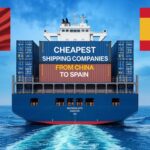






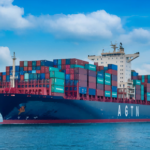

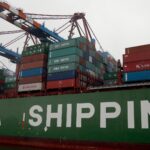

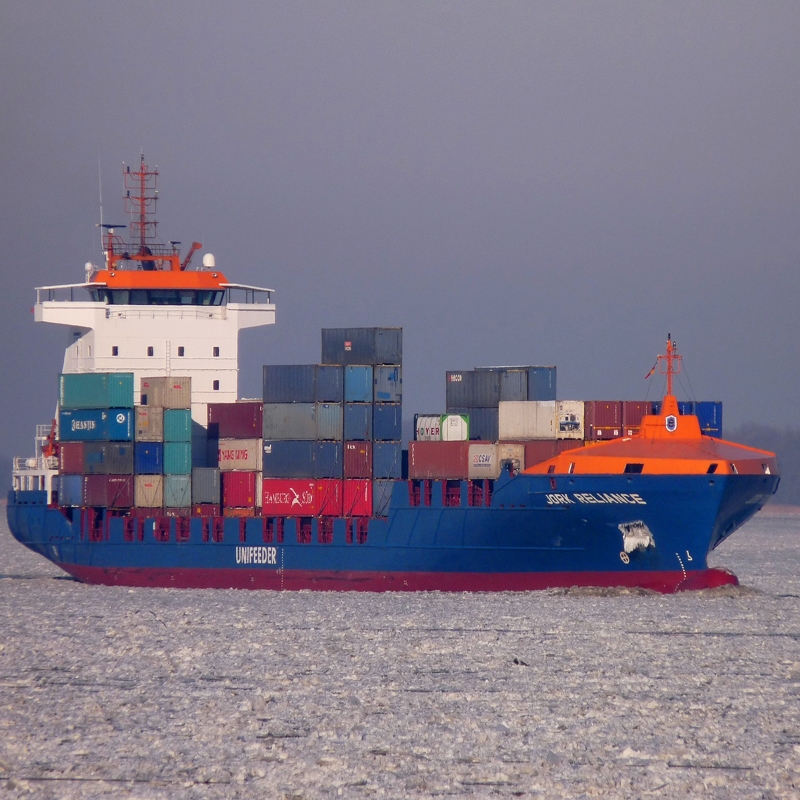
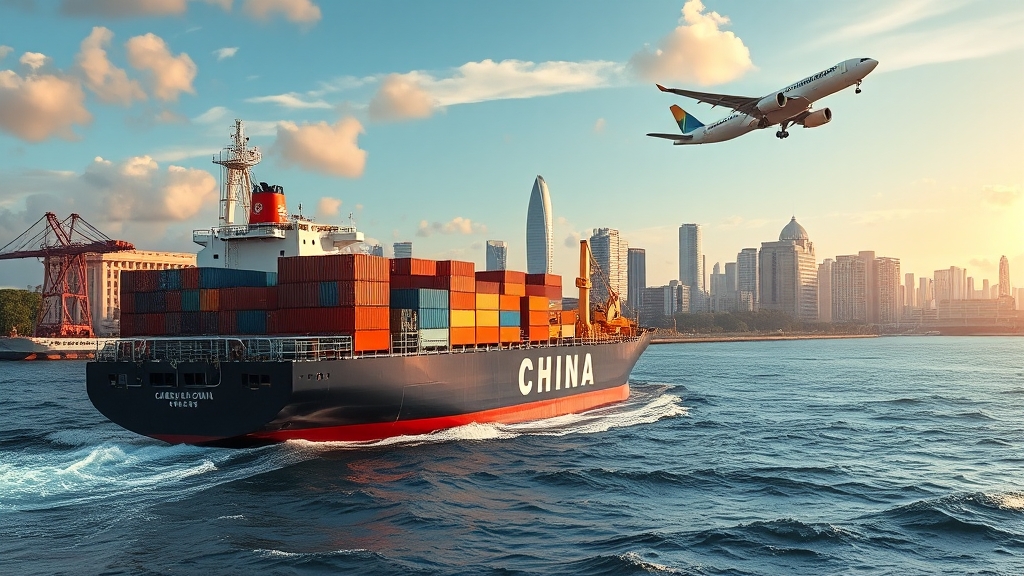

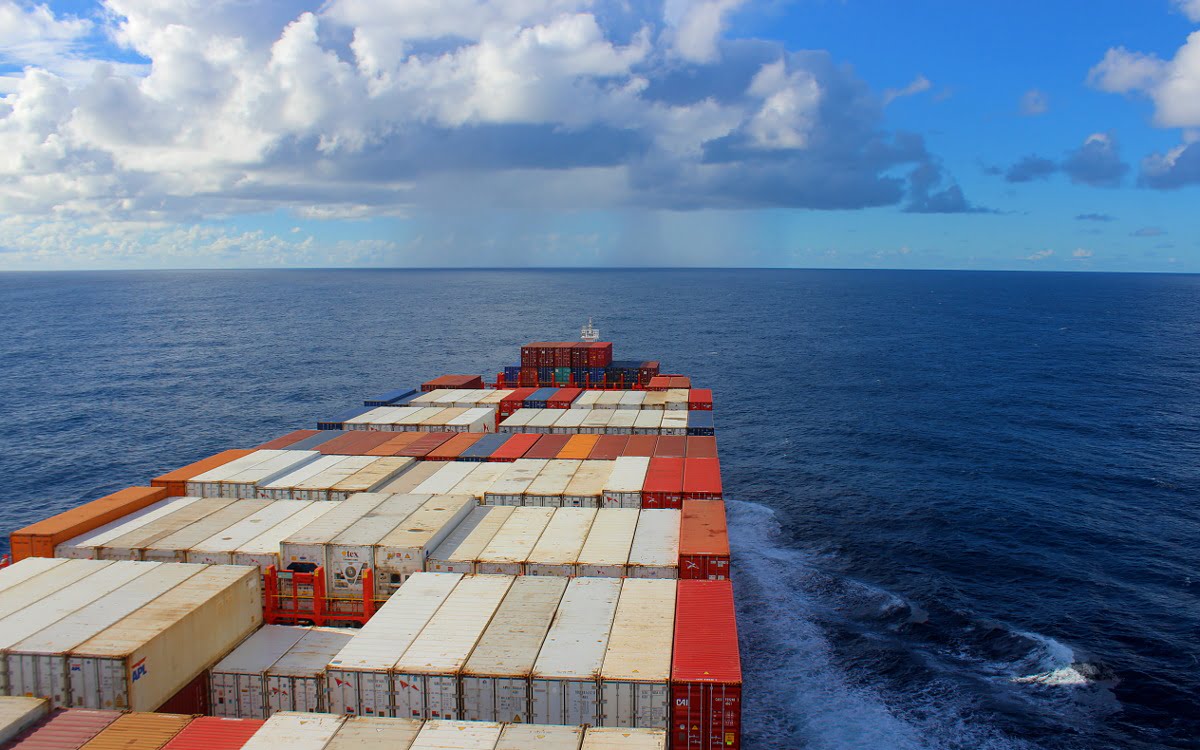





 Afrikaans
Afrikaans Shqip
Shqip አማርኛ
አማርኛ العربية
العربية Հայերեն
Հայերեն Azərbaycan dili
Azərbaycan dili Euskara
Euskara Беларуская мова
Беларуская мова বাংলা
বাংলা Bosanski
Bosanski Български
Български Català
Català Cebuano
Cebuano Chichewa
Chichewa 简体中文
简体中文 繁體中文
繁體中文 Corsu
Corsu Hrvatski
Hrvatski Čeština
Čeština Dansk
Dansk Nederlands
Nederlands English
English Esperanto
Esperanto Eesti
Eesti Filipino
Filipino Suomi
Suomi Français
Français Galego
Galego ქართული
ქართული Deutsch
Deutsch Ελληνικά
Ελληνικά Kreyol ayisyen
Kreyol ayisyen Harshen Hausa
Harshen Hausa Ōlelo Hawaiʻi
Ōlelo Hawaiʻi עִבְרִית
עִבְרִית हिन्दी
हिन्दी Hmong
Hmong Magyar
Magyar Íslenska
Íslenska Igbo
Igbo Bahasa Indonesia
Bahasa Indonesia Gaeilge
Gaeilge Italiano
Italiano 日本語
日本語 Basa Jawa
Basa Jawa ಕನ್ನಡ
ಕನ್ನಡ Қазақ тілі
Қазақ тілі ភាសាខ្មែរ
ភាសាខ្មែរ 한국어
한국어 كوردی
كوردی Кыргызча
Кыргызча ພາສາລາວ
ພາສາລາວ Latin
Latin Latviešu valoda
Latviešu valoda Lietuvių kalba
Lietuvių kalba Lëtzebuergesch
Lëtzebuergesch Македонски јазик
Македонски јазик Malagasy
Malagasy Bahasa Melayu
Bahasa Melayu മലയാളം
മലയാളം Maltese
Maltese Te Reo Māori
Te Reo Māori मराठी
मराठी Монгол
Монгол ဗမာစာ
ဗမာစာ नेपाली
नेपाली Norsk bokmål
Norsk bokmål پښتو
پښتو فارسی
فارسی Polski
Polski Português
Português ਪੰਜਾਬੀ
ਪੰਜਾਬੀ Română
Română Русский
Русский Samoan
Samoan Gàidhlig
Gàidhlig Српски језик
Српски језик Sesotho
Sesotho Shona
Shona سنڌي
سنڌي සිංහල
සිංහල Slovenčina
Slovenčina Slovenščina
Slovenščina Afsoomaali
Afsoomaali Español
Español Basa Sunda
Basa Sunda Kiswahili
Kiswahili Svenska
Svenska Тоҷикӣ
Тоҷикӣ தமிழ்
தமிழ் తెలుగు
తెలుగు ไทย
ไทย Türkçe
Türkçe Українська
Українська اردو
اردو O‘zbekcha
O‘zbekcha Tiếng Việt
Tiếng Việt Cymraeg
Cymraeg יידיש
יידיש Yorùbá
Yorùbá Zulu
Zulu